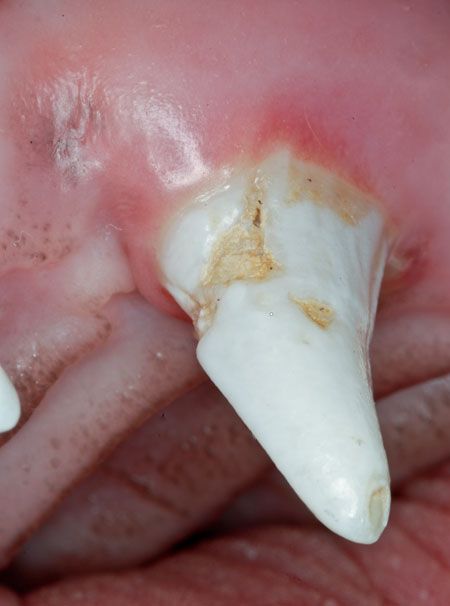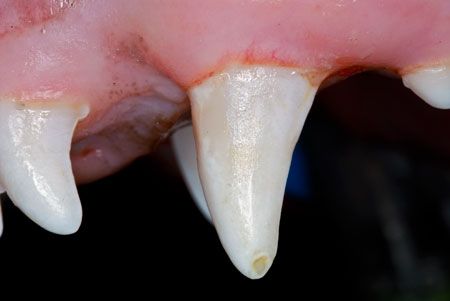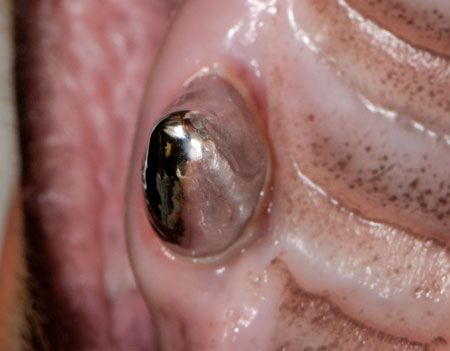Image Quiz: Missing enamel on a canine tooth
What approach would you take to fix this pups tooth and provide a solution for the long term?
Extraction might not be the only option when it comes to restoring dental health in patients that present with dental maladies. In many cases tooth repair can be an effective solution.
This dog presented with enamel hypoplasia. This condition occurs secondary to disrupted deposition of the enamel matrix in patients between 9 and 12 weeks of age caused by infection, poor nutrition or trauma. The condition can affect one or several teeth and may be focal or multifocal. The crowns of affected teeth have areas of normal enamel next to areas of hypoplastic or missing enamel, as pictured below.

A tooth with enamel hypoplasia. Note the areas of normal enamel next to missing enamel.
What approach would you take to resolve this condition for the pet?
A. Restore the tooth with light-cured acrylic resin
B. Extract the tooth
C. Restore the tooth with light cured acrylic resin plus a metallic crown for added protection
D. Perform a root canal
Click to page 2 to see if you're correct.
Answer:
If you chose A (restoring with light cured resin) or better C (restoring with acrylic and a metallic crown) you are correct!
Repair consisted of ultrasonic cleaning and polishing followed by application of phosphoric acid as an etchant. Light cured acrylic resin was added over the dental bonding agent and adhesive on the prepared areas void of enamel to protect the underlying dentin and pulp.

Acrylic restoration of enamel defects.
The canine was then prepared for crown restoration followed by an impression, which was sent to the dental laboratory for crown fabrication. Two weeks later the crown was cemented to further protect the tooth.

Metallic restoration of the crown for maximum protection.
For more about repairing damaged teeth, check out the full article from Dr. Bellows.
Dr. Jan Bellows owns All Pets Dental in Weston, Florida. He is a diplomate of the American Veterinary Dental College and the American Board of Veterinary Practitioners. He can be reached at (954) 349-5800 and dentalvet@aol.com.